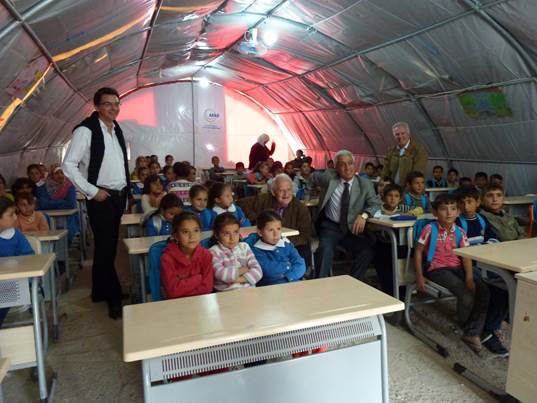Parliamentary engagement
During 2014–15, the department coordinated 20 official visits overseas, including bilateral visits to seven countries; attendance at seven assemblies, conferences, workshops and seminars; and 11 other visits, including Presiding Officer visits and the annual committee visits to New Zealand, the Asia–Pacific region and the People’s Republic of China (see Committee services, International Visits and Appendix 8). There were 10 official visits to Australia by parliamentary delegations from other countries as guests of the Australian Parliament (see Appendix 9) and 33 other visits, including a range of capacity-building activities (see Appendixes 10 and 11).
A significant regional focus was maintained in the visits programs. Eleven of the 20 overseas visits were to countries in Asia or Oceania, and four of the 10 official visits to Australia were from parliaments in our immediate region. One notable such visit was the first official parliamentary delegation from Fiji in 12 years, led by the Speaker of the Parliament of Fiji, Dr Jiko Luveni. The delegation’s visit in March 2015 represented a valuable opportunity to renew ties with the Parliament of Fiji, following elections in that country and the re-establishment of its parliament.
To enhance links with parliaments of Latin America, the Presiding Officers approved the introduction of a multi-country Latin American delegation visit to Australia for 2014–15. The visit took place in August and September 2014 and included regional Australia in addition to the capital cities; the delegation inspected businesses in the Hunter Valley and conducted a roundtable dialogue there with members of the Australian Parliament’s Joint Standing Committee on Foreign Affairs, Defence and Trade. Invitations have been issued to 10 parliaments for the second visit, scheduled to take place in September 2015.
For the 2014 outgoing delegations program, a new initiative—the parliamentary field visit—was trialled. The destination for a field visit is chosen based on a policy issue, rather than geography, to allow a group of parliamentarians with a particular interest in an issue to broaden their knowledge and understanding and report back to the parliament.
In considering potential topics for the visit to propose to the Presiding Officers, the party whips agreed that a field visit should focus on an issue that requires broad bipartisan support in the parliament to deliver an outcome for the community.
The first field visit was undertaken by the Hon Philip Ruddock MP and Mr Chris Hayes MP, who visited Jordan, Turkey and Lebanon in November 2014 to examine population movements, including asylum seekers. The delegates noted the value of the visit in giving them an insight into an important humanitarian issue with significant implications for Australia. On their return, they presented their views and findings at a forum for members, senators and parliamentary staff.
Following the success of the first field visit, a further two—to examine energy security and community inclusion—were approved for 2015. It is anticipated that two field visits will be a standard inclusion in the outgoing delegations program in non-election years.
The work of incoming and outgoing parliamentary delegations continued to be promoted through the Parliament of Australia website, including publication of short articles and video interviews with delegation leaders.
Outgoing and incoming delegations gave positive feedback on the quality of the programs, both at debrief meetings and through correspondence. For example, Professor Dr Norbert Lammers, President of the German Bundestag, who led a parliamentary delegation to Australia in October 2014, thanked the Presiding Officers for the arrangements made for the delegation, praising the ‘most informative’ program and its ‘fantastic preparation and thoughtful stewardship’, and indicating that the delegation looked forward to continuing the contact established during the visit.

The Hon Philip Ruddock MP (centre, seated) and Mr Chris Hayes MP (standing, at right) visiting a class at Nizip refugee camp in Turkey on a parliamentary field visit, November 2014.